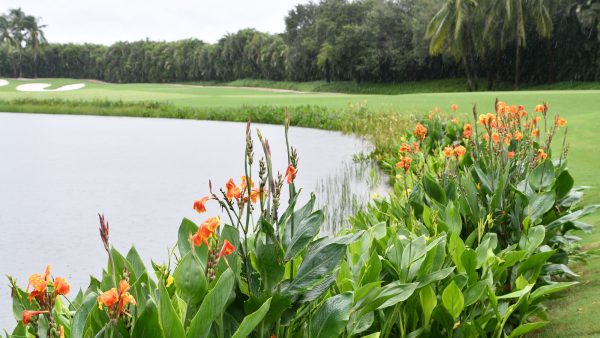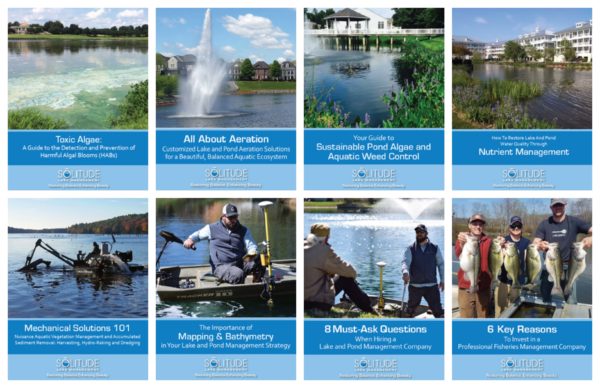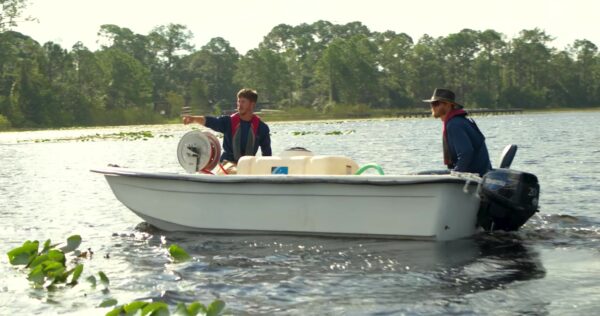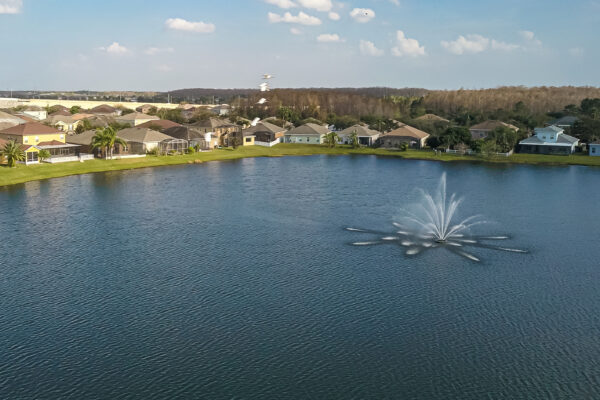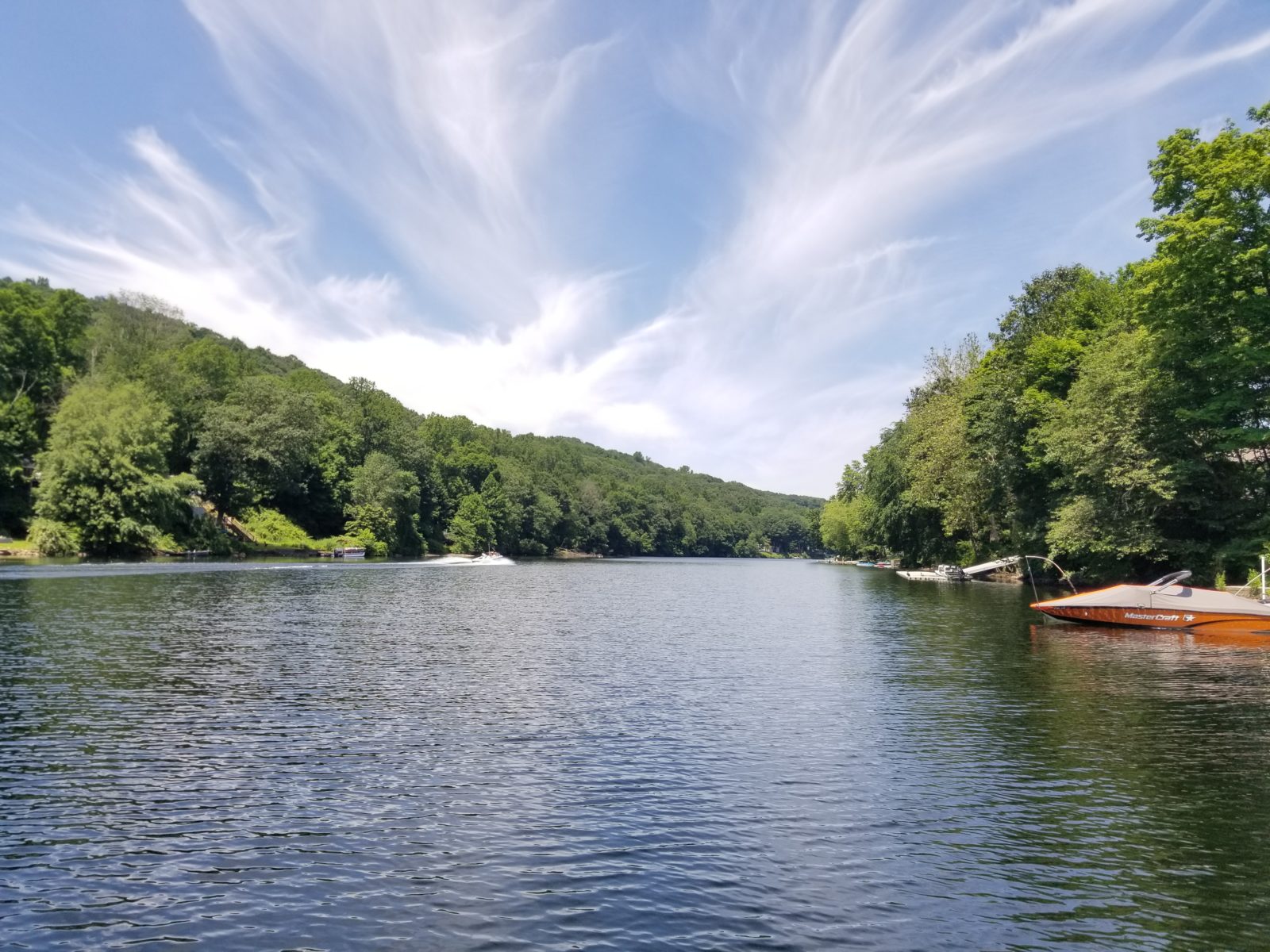Case Study: New Highly-Selective Herbicide Used to Eradicate Milfoil
May 28th, 2019
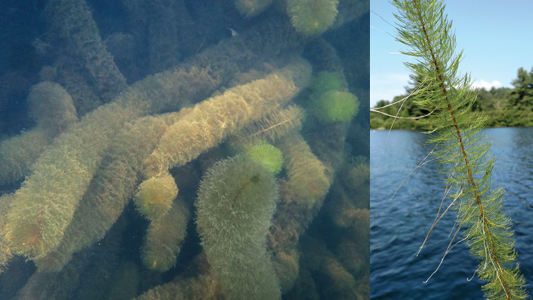
Variable milfoil (Myriophyllum heterophyllum) is a highly invasive exotic plant that is threatening our freshwater ecosystems. If left unmanaged, it not only has the ability to impair ecological balance but will readily spread throughout a waterbody and to surrounding waterbodies, as it can easily be transported by heavy downstream water flow and on the boats and trailers of unsuspecting boaters.
SOLitude has been managing variable milfoil for quite some time in Back Bay, a 34-acre bay located on Lake Winnipesaukee in Wolfeboro, New Hampshire. The relatively shallow bay serves as a valuable resource to the surrounding community by providing excellent fish and wildlife habitat, as well as recreational opportunities, such as fishing, boating, wildlife viewing, a competitive tournament water skiing course/jump and a designated model sailboat racing area.
Variable milfoil was treated eight times in Back Bay since 1991, with seven of those treatments occurring between 2005 and 2015. Some degree of diver hand pulling and suction harvesting also occurred annually, beginning in 2008. Last year, we decided to take a new approach to the management of the bay—and we saw some rather incredible results.
Taking a different approach to combat this invasive plant, the SOLitude team decided to utilize ProcellaCOR, a new aquatic herbicide that had just recently been registered in New Hampshire. ProcellaCOR, highly selective to milfoil, required much less product to be applied compared to past treatments.
The management approach involved treating the entire Bay (34 acres) with a properly concentrated dose of ProcellaCOR, which is designed to quickly and specifically target the invasive plant species. The herbicide application was made in early to mid-September 2018.
SOLitude hired an independent, NELAC accredited laboratory to collect and analyze water samples for herbicide residues following the treatment, in accordance with Special Permit conditions. During the post-treatment inspection, there was no viable milfoil found in the Bay. Additionally, no adverse impacts to non-target plants or other aquatic organisms were observed directly in or immediately adjacent to the treated areas during the post‐treatment survey.
While preventative measures are the preferred management approach, if possible, the success of this treatment demonstrates a new and exciting long-term management strategy that can be employed throughout the country in areas where this highly invasive plant has already taken over.
Contact the experts at 888-480-5253 for all of your lake, stormwater pond, wetland and fisheries management needs.
SOLitude Lake Management is a nationwide environmental firm committed to providing sustainable solutions that improve water quality, enhance beauty, preserve natural resources and reduce our environmental footprint. SOLitude’s team of aquatic resource management professionals specializes in the development and execution of customized lake, stormwater pond, wetland and fisheries management programs that include water quality testing and restoration, nutrient remediation, algae and aquatic weed control, installation and maintenance of fountains and aeration systems, bathymetry, shoreline erosion restoration, mechanical harvesting and hydro-raking, lake vegetation studies, biological assessments, habitat evaluations, and invasive species management. Services and educational resources are available to clients nationwide, including homeowners associations, multi-family and apartment communities, golf courses, commercial developments, ranches, private landowners, reservoirs, recreational and public lakes, municipalities, drinking water authorities, parks, and state and federal agencies. SOLitude Lake Management is a proud member of the Rentokil Steritech family of companies in North America.

